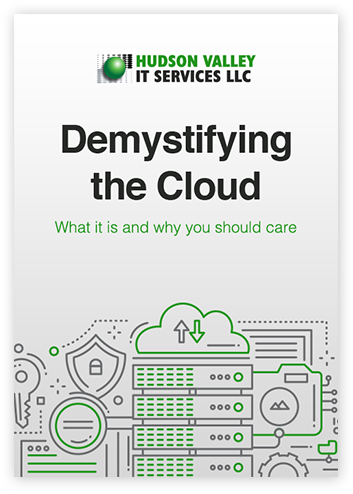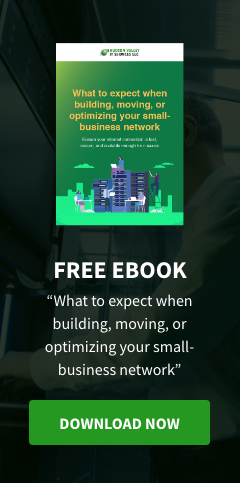The cloud is used to describe a vast network of remote servers around the world, designed to store and manage data, run applications, or deliver content. So instead of accessing data from a local computer, a user accesses them in the cloud from a connected device like a PC or smartphone. Many popular online services are available to us via the cloud, making life a little more entertaining and convenient. They include Youtube, Facebook, Dropbox, and Google drive just to name a few.
For businesses, however, the cloud has become increasingly crucial to the success of many businesses. It has taken the burden of many business-critical IT functions such as data storage and compute from in-house infrastructure. It has allowed businesses to improve processes, enhance customer experience, and stay competitive. But that’s not all that it does.
Why are enterprises moving to the cloud?
With the cloud, your business will spend far less than when you purchase, maintain, and upgrade in-house servers and hardware yourself, substantially reducing your monthly energy and other overhead costs.
The cloud also gives your business greater flexibility. With a cloud-supported remote working environment, your employees are more motivated and more productive as they work from any location, even from their homes. Staff can easily access work files using their laptops and other mobile devices that are connected to the internet. Cloud services like Office 365 offer instant collaboration and provide your users with better and more efficient productivity platforms.
Their scalability is also unmatched. Cloud services let you scale up or down depending on the changing demands of your business. That means you only pay for the resources you need at any given time and not have to worry about any maintenance and support costs.
Lastly, cloud services that include secure data storage can help businesses establish a solid business continuity plan to protect them from data loss and downtime in the event of a disaster.
Who can help you successfully migrate to the cloud?
To experience the cloud’s benefits, your business needs to migrate its data to the cloud, a typically arduous and challenging process.
Partnering with a managed services provider (MSP) can make migration a success. An MSP will begin by identifying problems in your existing IT infrastructure that migrating to the cloud can fix. For instance, it can conduct a gap analysis to identify issues and recommend cloud services that will close gaps. Likewise, an MSP can assess existing IT platforms and solutions to ascertain which should be moved to the cloud and determine the budget needed to do so.
Download our free eBook!
Interested in moving to the cloud? Read our free eBook, Demystifying the Cloud: What it is and why you should care for information on how it works and why you need it.
A successful migration doesn’t end when data has been moved to the cloud. Once it’s in the cloud, a good MSP will also manage that data for you. They’ll take the pressure off your shoulders and ensure that data is secure and its maintenance and upgrades go smoothly.
If you're looking for a services provider who can help you successfully migrate to the cloud, make sure to look for one that can do the following:
- Develop and implement a cloud plan that’s specific to your industry.
- Deliver other cloud-related services besides migration and ongoing support.
- Deploy a robust set of tools for complete automation.
- Possess a proven track record of great results.
- Provide you with regular progress reports and an option to leave the partnership if they can’t deliver.
- Offer pay-as-you-go options, scale services, and deal with complex requirements.
Partnering with Hudson Valley IT Services in moving critical components of your IT infrastructure to the cloud will allow you to boost productivity and reduce operating costs. A successful cloud migration is the first important milestone in transforming your business into a more nimble, stable, and cost-effective enterprise through cloud computing. We can help you get there. Talk to us today.
Like This Article?
Sign up below and once a month we'll send you a roundup of our most popular posts



